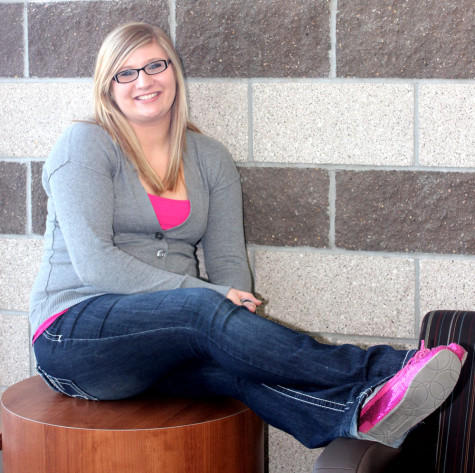Many people are afraid to talk to reporters or writers for fear of being misquoted or taken advantage of.
Anyone with a background in journalism knows how to handle an interview, as well as how to properly use the information received. In some cases however, the writer can misinterpret or misuse this information and turn the article in a completely different direction. It is wrong, and very upsetting to those involved.
An example of this was brought to my attention recently when Christine Tuttle posted a status on Facebook in reaction to an article published in the Omaha World Herald.
“I have to say that I’m incredibly upset and disappointed by Paul Hammel’s article in the Omaha World Herald this morning. It was insensitive, inaccurate and extremely hard and frustrating to read,” Tuttle said. “The only reason I decided to speak to Paul was so that I would be left alone to remember my mom and would not be bothered by reporters.”
“There were very important things I wanted to get across and NONE of those things were published.”
The fact that this happened is absolutely appalling to me. I have read the article, and I agree that it was very poorly written. It was supposed to be a memorial article, an article to remember the innocent people who were killed that day, ten years ago.
Hammel included many things in the article that did not belong there at all. The lead of the article talks about a completely separate event that occurred in Aurora, Neb. He went on in the article to talk about Abe Montalvo, a local business owner that had no connection with robbery or the victims. Hammel was also disrespectful to the families of the victims by having pictures of the murderers on the same page as photographs of the victims.
It is a journalists’ job to provide the clearest and most accurate story possible. When learning about interviews, one is taught not to pick and choose from what a source says in an interview in order to create your own story. A journalist should do everything in his or her capabilities to fully understand and make sure not to misrepresent or misquote a source.
It is a good idea for journalists to record the interview, in order to go back and double check quotes. Also having the interviewee approve all quotes before publishing them, is helpful.
” I feel that Paul’s article was sensationalized. There were things published that do not even matter. I feel like I was misquoted and I feel very used and misrepresented but most of all sad,” Tuttle went on to say.
All reporters should know how to handle interviews and quotes. Journalism is a profession, and a reporter should be trained as such. A surgeon is trained to be a surgeon and you expect them to know what they are doing. The same goes for a reporter, you expect them to properly quote you and write a good article.
These things may happen, but I am truly disgusted by that. As a writer I believe that we should all be properly trained to ensure this does not happen.
I apologize to anyone who has been snubbed by a reporter in the past, and I think you should give it another try. Most journalists are professionals that know how to communicate with other people and provide balanced reporting.



